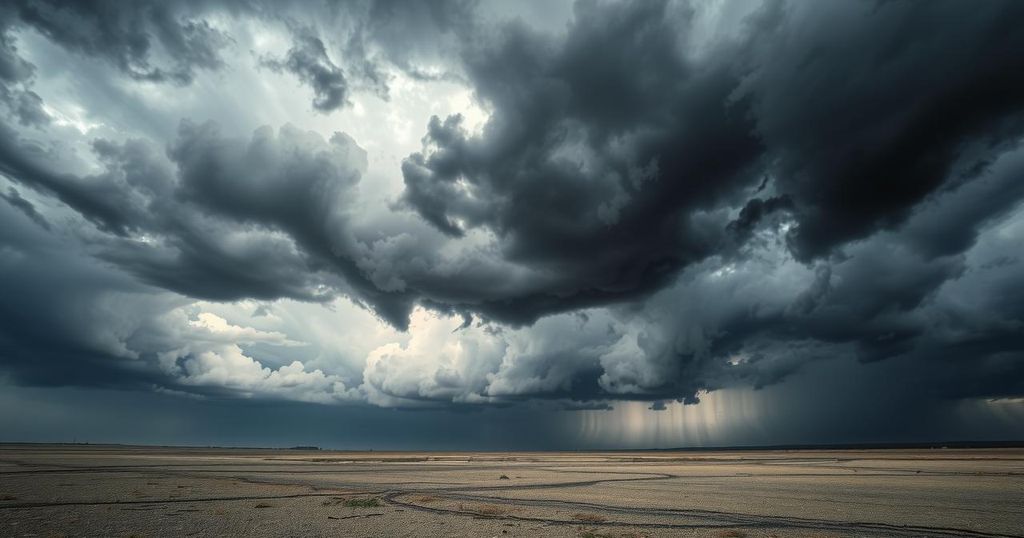Riek Machar’s arrest in South Sudan exacerbates tensions with President Salva Kiir, risking a return to civil war. The UN warns of severe implications if the 2018 peace deal is breached. Intense military clashes and political turmoil contribute to a highly dangerous situation, prompting international concern and embassy evacuations.
The arrest of South Sudan’s First Vice President Riek Machar on Wednesday has positioned the nation precariously close to renewed conflict. This dramatic action involved a convoy of 20 armed vehicles raiding Machar’s residence in Juba, as confirmed by his party’s representative. Tensions have escalated as a power-sharing agreement with President Salva Kiir has deteriorated, potentially reviving the devastating civil war that resulted in about 400,000 deaths between 2013 and 2018.
A statement from Machar’s party condemned the unconstitutional actions of the Minister of Defense and Chief of National Security. They noted that Machar’s bodyguards were disarmed and he was served an arrest warrant on vague charges. The UN Mission in South Sudan (UNMISS) has warned that this situation could lead to widespread conflict, urging that any breach of the peace deal from 2018 would have regional repercussions.
Since declaring independence from Sudan in 2011, South Sudan has grappled with poverty and insecurity despite a peace agreement. Analysts observe that President Kiir, now 73, has been actively working to politically marginalize Machar through various cabinet changes. Furthermore, over 20 allies of Machar have been detained without communication, escalating fears of political repression.
Clashes between forces loyal to both leaders have intensified, particularly in Upper Nile State’s Nasir County. Reports state that government forces attacked Machar’s military bases and training centers, which were established under the 2018 peace agreement aimed at uniting the military forces. Machar’s military spokesperson labeled these assaults as acts of “terrorism,” urging a global response.
The ongoing violence and political unrest have left residents in Juba anxious. Citizens like Lilian Sukeji express concern over the deteriorating situation, urging for dialogue instead of armed conflict. President Kiir has previously emphasized his commitment to peace, even after recent clashes in Nasir County generated uncertainty.
International analysts highlight the increased violence, advising that Kiir and Machar’s refusal to pursue dialogue is a significant warning sign. Experts fear that should large-scale conflict erupt, it may lead to highly decentralized violence that would be challenging to control. As tensions rise, diplomatic missions, including those from Norway and Germany, are closing embassies, with the US and UK advising their citizens to exit South Sudan.
The arrest of Vice President Riek Machar signals a troubling escalation in South Sudan’s political crisis, risking a return to civil war. A deteriorating power-sharing agreement with President Kiir and ongoing violence have raised alarms among international observers. Urgent calls for dialogue are emphasized to prevent further societal breakdown and regional instability, as the international community closely monitors the situation.
Original Source: www.newstopicnews.com






